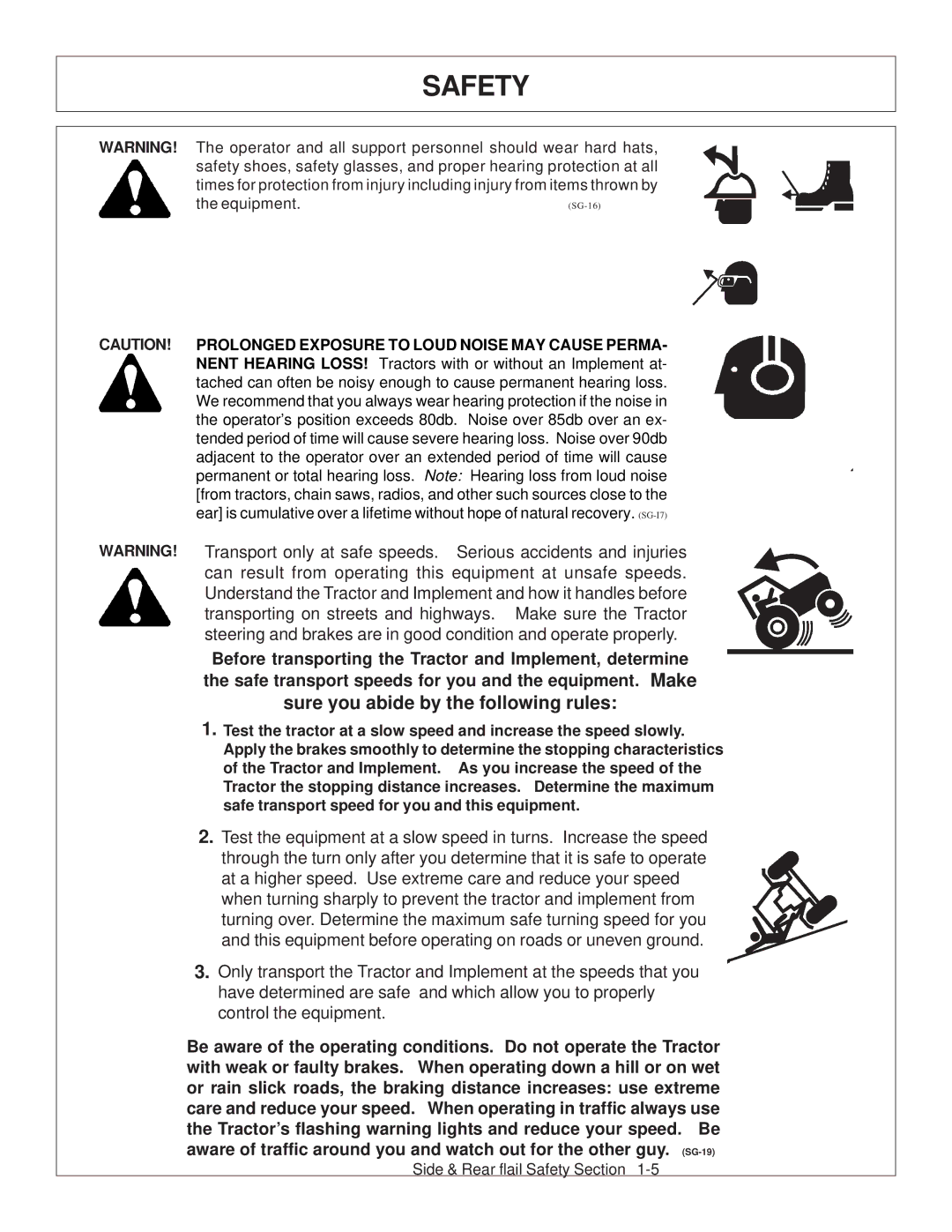
SAFETY
WARNING! The operator and all support personnel should wear hard hats, safety shoes, safety glasses, and proper hearing protection at all times for protection from injury including injury from items thrown by the equipment.
CAUTION! PROLONGED EXPOSURE TO LOUD NOISE MAY CAUSE PERMA- NENT HEARING LOSS! Tractors with or without an Implement at- tached can often be noisy enough to cause permanent hearing loss. We recommend that you always wear hearing protection if the noise in the operator’s position exceeds 80db. Noise over 85db over an ex- tended period of time will cause severe hearing loss. Noise over 90db adjacent to the operator over an extended period of time will cause permanent or total hearing loss. Note: Hearing loss from loud noise [from tractors, chain saws, radios, and other such sources close to the ear] is cumulative over a lifetime without hope of natural recovery.
WARNING! Transport only at safe speeds. Serious accidents and injuries can result from operating this equipment at unsafe speeds. Understand the Tractor and Implement and how it handles before transporting on streets and highways. Make sure the Tractor steering and brakes are in good condition and operate properly.
Before transporting the Tractor and Implement, determine the safe transport speeds for you and the equipment. Make
sure you abide by the following rules:
1.Test the tractor at a slow speed and increase the speed slowly. Apply the brakes smoothly to determine the stopping characteristics of the Tractor and Implement. As you increase the speed of the Tractor the stopping distance increases. Determine the maximum safe transport speed for you and this equipment.
2.Test the equipment at a slow speed in turns. Increase the speed through the turn only after you determine that it is safe to operate at a higher speed. Use extreme care and reduce your speed when turning sharply to prevent the tractor and implement from turning over. Determine the maximum safe turning speed for you and this equipment before operating on roads or uneven ground.
3.Only transport the Tractor and Implement at the speeds that you have determined are safe and which allow you to properly control the equipment.
Be aware of the operating conditions. Do not operate the Tractor with weak or faulty brakes. When operating down a hill or on wet or rain slick roads, the braking distance increases: use extreme care and reduce your speed. When operating in traffic always use the Tractor’s flashing warning lights and reduce your speed. Be aware of traffic around you and watch out for the other guy.
Side & Rear flail Safety Section
